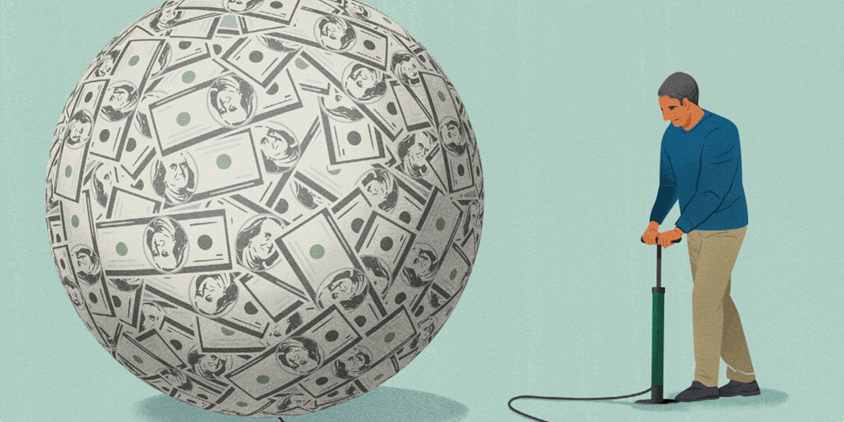By the time retirement rolls around, many people have built up substantial equity in their homes. This equity can be a valuable resource in retirement, and there are several ways to make the most of it:
1. Paying Off Your Mortgage
The first and most common way to make the most of your home equity. For many people, paying off their mortgage will allow them to significantly reduce their debt in retirement. On the other hand, many people have low mortgage interest rates of 2-4%, and with interest rates on savings and money market rates going up, some paying 4-5%, many CPA’s may suggest you not pay off your mortgage. There is no right or wrong answer and this is a decision that should be discussed with your financial professionals. If your home isn’t fully paid off and the remaining balance is manageable, consider using assets from your bank or taxable account to pay it off. In return, this can also reduce the stress on your expenses in retirement. In return, this can also reduce the stress on your investments, lower your tax burden (since you’ll be withdrawing less), and potentially allow you to adopt a more conservative investment strategy.
2. Establish a Home Equity Line of Credit (HELOC)
A HELOC offers flexibility, as you only borrow what you need. It can serve as an emergency reserve, allowing you to keep less cash on hand and invest more in higher-yielding opportunities. If your cash flow is uneven, a HELOC can help cover shortfalls, with the option to repay when you have more income. It’s also a useful tool for financing larger purchases, like a new car or a dream vacation, especially if you can’t find favorable loan rates. Just be cautious—HELOCs come with variable interest rates, which could increase over time.
3. Refinance Your Mortgage
If you can’t pay off your mortgage before retirement, refinancing might be worth considering. Starting a new 30-year mortgage can reduce your monthly amount, especially if you’re currently in the middle of a shorter-term loan. A more aggressive strategy would be a cash-out refinance, where you pull equity from your home to supplement your retirement income or boost your portfolio. This approach is riskier, as it involves taking on more debt, but it could be appealing if you’re comfortable with market volatility and have a long-term perspective.
4. Use Your Home as a Bequest (Legacy)
For those who want to leave a legacy, including fully paid off home in your estate plan would make a nice gift to your heirs. Rather than being overly frugal with your investment portfolio, consider the value of your home as part of your bequest. This might allow you to enjoy a more comfortable retirement while still achieving your goal of passing on wealth to your family or favorite charities.
5. Downsize
If your home feels too large or you’re ready for a change, downsizing can be an effective way to reduce expenses and free up cash. Before committing to a new home, consider renting in the area first to ensure it’s the right fit. Downsizing can also bring non-financial benefits, such as less upkeep around the house/yard, a fresh start, and new social connections. Another option if you are seeking more income is to rent out your home for a year or two before selling it. If the rental income exceeds the costs of your new home, and if you anticipate real estate appreciation, this could be a profitable short-term strategy. However, be mindful of the capital gains exclusion rules to maximize your tax benefits when selling your primary residence.
6. House Swap
For the adventurous, a house swap allows you to travel while saving on accommodation costs. You can exchange homes with other travelers, staying in each other’s homes for an agreed period. This can be a cost-effective way to explore new places during retirement.
7. Reverse Mortgage
A reverse mortgage enables you to convert your home equity into income without having to move. You must be 62 or older to qualify. Benefits include staying in your home, no required mortgage payments unless you move, and never owing more than the home’s value. The borrowed funds are tax-free, and you can choose between a lump sum, line of credit, or monthly payments. However, reverse mortgages can be expensive to set up, and the amount you can borrow may be less than you expect. If you love your home and believe it will meet your needs as you age, a reverse mortgage could be a suitable option. However, if you don’t plan to stay in your current home, downsizing might be a better choice. Finding a home that’s better suited to your needs can enhance your comfort and financial security in retirement.



